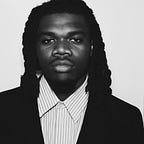A Linguistic Shift: The Definition Pride is Changing Before Our Very Eyes.
Insightful analysis of how the media send internet shifts our language and perspectives.
Introduction
American society has undergone immense change as well as the narrative of American society. When a society changes numerous factors affect how a society changes, the direction of society, and the language used to interpret or express the changes in society and it’s complications primarily.
However, most of the change can be seen in American society through our language. Not just the words but the symbols, colors, laws, technology, the internet, money, and people who govern our society.
A Shift In Terminology
One shift we are experiencing better yet a war we are having right now in American society is gender identity, sexual orientation, and sexual classification of genders. The word mainly associated with the LGBTQ community is pride. However, pride and it’s original definition means something completely different from how pride is expressed in the media and on the internet.
If you search the word pride on your search engine you will see anything that is comprised of gender identity, sexual orientation, and news…
